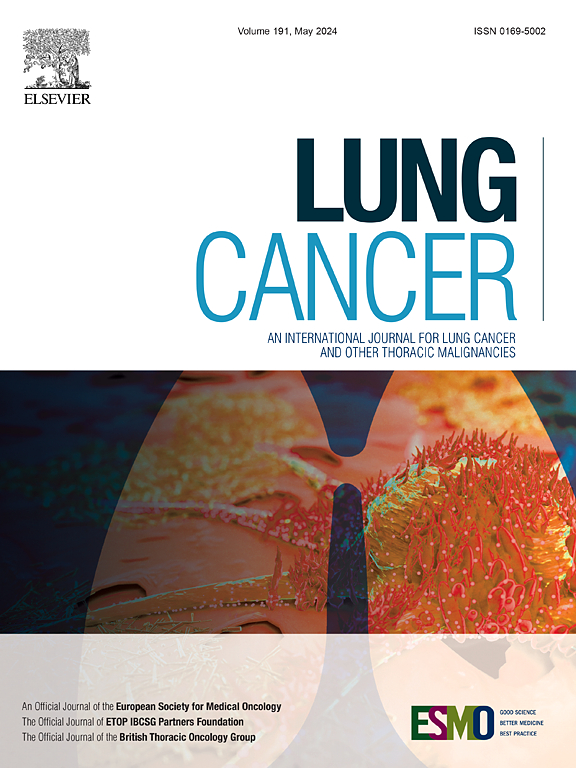Proposal of real-world solutions for the implementation of predictive biomarker testing in patients with operable non-small cell lung cancer
IF 4.5
2区 医学
Q1 ONCOLOGY
引用次数: 0
Abstract
The implementation of biomarker testing for targeted therapies and immune checkpoint inhibitors is a cornerstone in the management of metastatic and locally advanced non-small cell lung cancer (NSCLC), playing a pivotal role in guiding treatment decisions and patient care. The emergence of precision medicine in the realm of operable NSCLC has been marked by the recent approvals of osimertinib, atezolizumab, nivolumab, pembrolizumab and alectinib for early-stage disease, signifying a shift towards more tailored therapeutic strategies. Concurrently, the landscape of this disease is rapidly evolving, with several further pending approvals and numerous clinical trials in progress.
To harness the benefits of these innovative neo-adjuvant and adjuvant therapies, the integration of predictive biomarker testing into standard clinical protocols is imperative for patients with operable NSCLC. A multidisciplinary international consortium has identified three primary obstacles impeding the effective testing of patients with operable NSCLC. These challenges encompass the limited number of test requests by physicians, the inadequacy of tissue samples for comprehensive testing, and the prevalence of cost-reduction measures leading to suboptimal testing practices.
This review delineates the aforementioned challenges and proposed solutions, and strategic recommendations aimed at enhancing the testing process. By addressing these issues, we strive to optimize patient outcomes in operable NSCLC, ensuring that individuals receive the most appropriate and effective care based on their unique disease profile.
求助全文
约1分钟内获得全文
求助全文
来源期刊

Lung Cancer
医学-呼吸系统
CiteScore
9.40
自引率
3.80%
发文量
407
审稿时长
25 days
期刊介绍:
Lung Cancer is an international publication covering the clinical, translational and basic science of malignancies of the lung and chest region.Original research articles, early reports, review articles, editorials and correspondence covering the prevention, epidemiology and etiology, basic biology, pathology, clinical assessment, surgery, chemotherapy, radiotherapy, combined treatment modalities, other treatment modalities and outcomes of lung cancer are welcome.
 求助内容:
求助内容: 应助结果提醒方式:
应助结果提醒方式:


